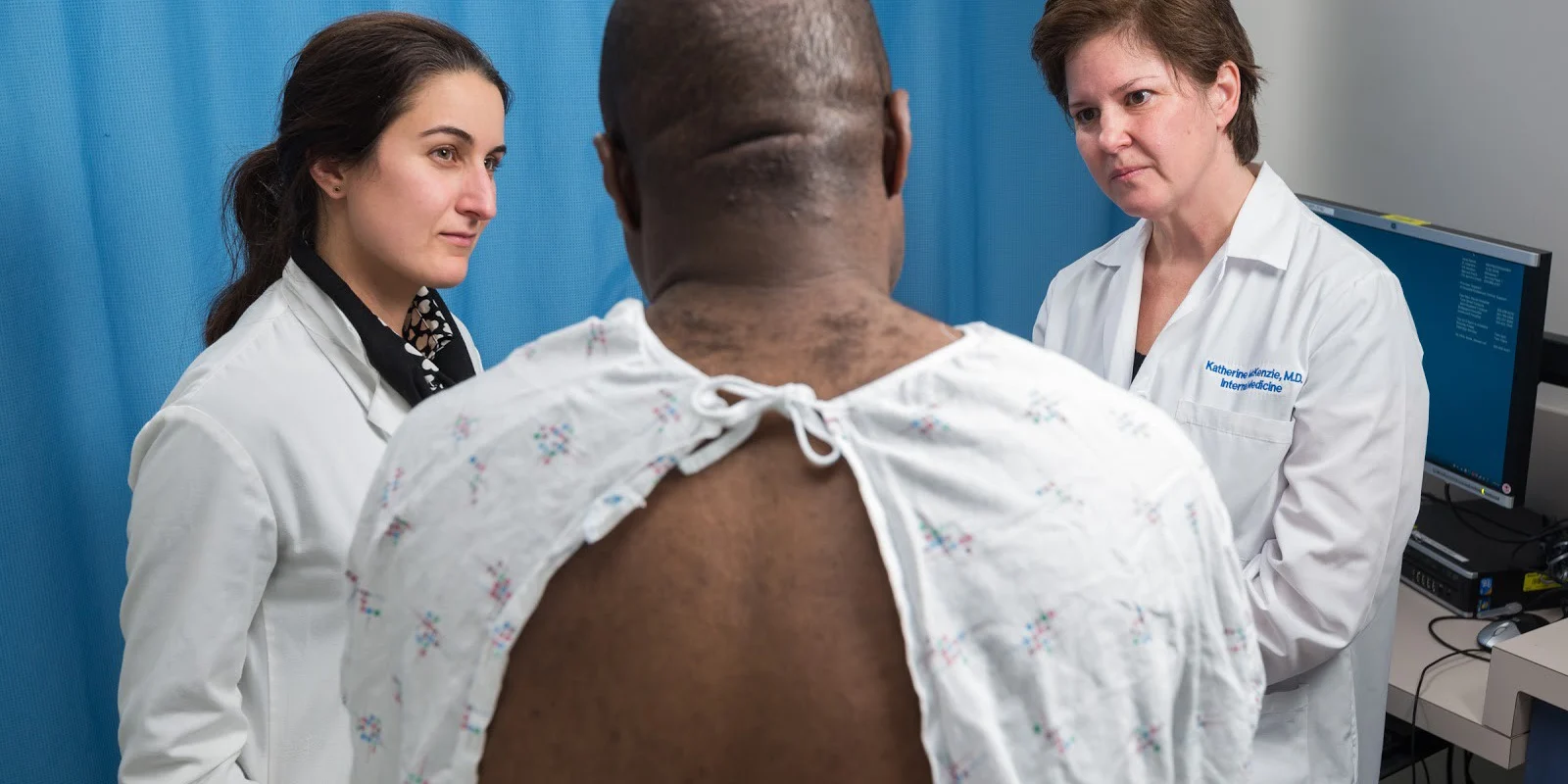
From Doctors Without Borders to the American Red Cross, many clinicians have found a calling helping people abroad. Medical volunteers often work in regions known for violence and conflict. For many clinicians, this is where they believe they can have the biggest impact.
Dr. Katherine McKenzie, however, noticed a humanitarian need closer to home, right in New Haven, Connecticut.
About 15 years ago, a colleague approached Dr. McKenzie and asked if she would be interested in performing a medical forensic evaluation for a US asylum seeker. Asylum is a form of protection granted to someone in the US who cannot return to their home country for fear of persecution.
Despite knowing little about how physicians can help asylum seekers, she agreed. Her work led to the creation of the Yale Center for Asylum Medicine, which she directs.
The Center works with immigration lawyers and human rights groups to evaluate asylum cases. Physicians like Dr. McKenzie perform objective medical exams to document physical and psychological signs of trauma and write medicolegal affidavits. These documents are used by the asylum seeker in immigration court to support their case.
After over 100 medical forensic evaluations in 15 years, Dr. McKenzie has heard many stories of trauma. She strives to empathize with each individual as best she can. She elaborates, “You have to be able to try to understand on some level what they’ve experienced and what they need in order to serve them in an effective way.”
Because she hears about abuse and ill-treatment regularly, she frequently relies on her colleagues at the Center for support. “We depend on each other to speak about how we might be feeling emotionally and why one case may disturb us more than another,” she explains.
Even though her work can be emotionally challenging, the resilience she sees in the asylum seekers is moving. “You see someone who has been tortured or injured, in a way that is hard to imagine, and yet they emerge as a whole and healing person,” she reflects, “It is quite inspiring.”
Dr. McKenzie and her team do not always hear of the case’s outcome after providing an affidavit or testimony in court. When she gets the opportunity to be updated on her clients, it serves as an important reminder of how impactful her work is.
In one case, Dr. McKenzie got to follow the progress of an asylee for many years after their case was closed. When he resisted an oppressive government in Africa, he was arrested and subjected to brutal torture there. Dr. McKenzie led the medical evaluation for his case when he came to the US and filed for political asylum.
“I was told subsequently by his attorney that the medical forensic evaluation that was performed was instrumental in granting him asylum,” she remembers. Because he decided to remain in the area, Dr. McKenzie got to follow his progress. “He has a steady job. His children are in school; some are even in college now. He and his wife have created a home in this country. So that, to me, is the arc of what can be possible,” she reflects.
Dr. McKenzie is motivated by securing this same freedom and security for her other asylees. She explains, “I like the idea that I can see someone and help them create a safe and productive life.”
By supporting and contributing to asylum cases, Dr. McKenzie actively protects the fundamental rights outlined by the Universal Declaration of Human Rights (1948). These rights include the right to be free from persecution, the right to hold political beliefs, and the right to religion. Assisting individuals fleeing violence is her way of resisting these human rights violations. “I like to be a part of something that really addresses fundamental unfairness,” she says.
Even though some physicians are able to apply their skills abroad, she believes every physician can easily advocate for human rights locally. Like Dr. McKenzie, clinicians can participate in local global health, which means working with vulnerable populations locally. This community involvement does not have the demanding time commitment that is often required when volunteering abroad.
“There are plenty of places around the country where physicians without a whole lot of time can be trained to perform these medical evaluations and can do them in their own communities,” she advises. By thinking about the needs of local refugees and asylum seekers, physicians can provide more informed care for these populations.
Dr. McKenzie also encourages physicians to be involved as advocates. “Doctors have a particular stature in society and a unique expertise that makes them wonderful advocates not just for asylum seekers, but also for individuals who are vulnerable or underserved in general,” she says.
She believes every physician has a responsibility to be an advocate for human rights. In their Declaration of Professional Responsibility, the American Medical Association states, “Humanity is our patient.” Dr. McKenzie holds that sentiment close to her heart daily.
“Caring for individuals is noble and it’s part of our calling as physicians,” Dr. McKenzie explains, “but caring for humanity is part of our calling as well.”






